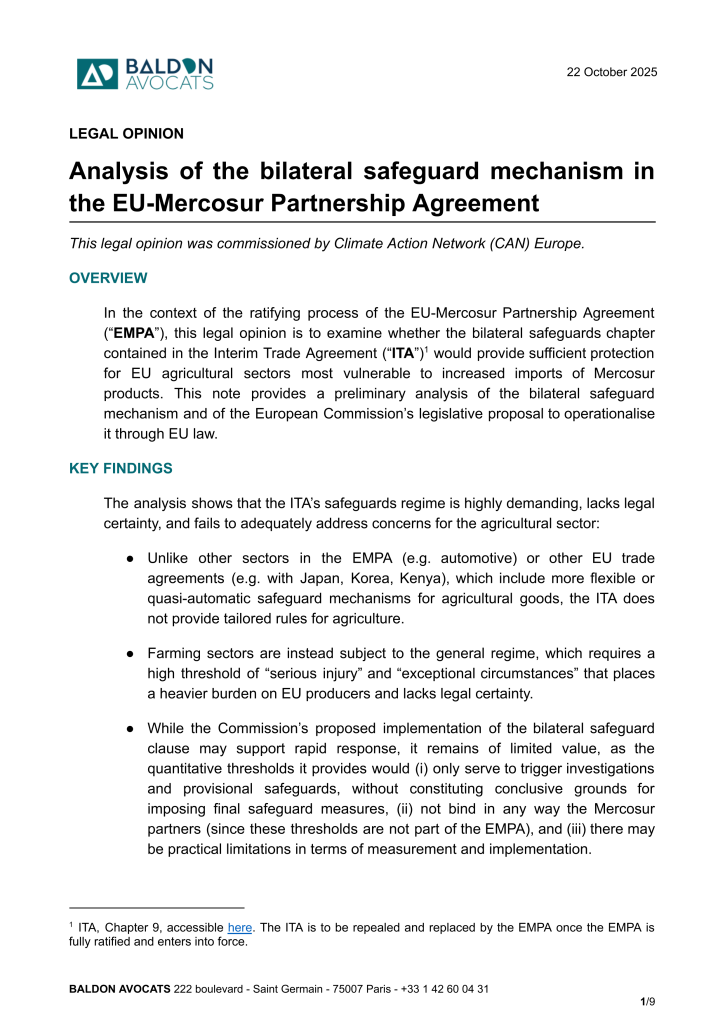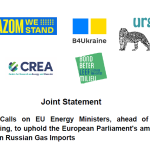In the context of the ratifying process of the EU-Mercosur Partnership Agreement (“EMPA”), this legal opinion is to examine whether the bilateral safeguards chapter contained in the Interim Trade Agreement (“ITA”) would provide sufficient protection for the EU agricultural sectors most vulnerable to increased imports of Mercosur products. This note provides a preliminary analysis of the bilateral safeguard mechanism and of the European Commission’s legislative proposal to operationalise it through EU law.
Clémentine Baldon, Founding Partner at Baldon Avocats, said:
“The bilateral safeguard mechanism in the EU-Mercosur Trade agreement remains highly demanding, which in practice may make it challenging to successfully demonstrate that agricultural safeguard measures are justified in the event of a dispute.
The Commission’s regulation proposal for the implementation of the bilateral safeguard only defines how the EU intends to use its right to apply safeguard measures. It cannot guarantee that those measures will be considered legal under the trade agreement, particularly from the Mercosur countries’ point of view.”
KEY FINDINGS
- The analysis shows that the ITA’s safeguards regime is highly demanding, lacks legal certainty, and fails to adequately address concerns for the agricultural sector:
- Unlike other sectors in the EMPA (e.g. automotive) or other EU trade agreements (e.g. with Japan, Korea, Kenya), which include more flexible or quasi-automatic safeguard mechanisms for agricultural goods, the ITA does not provide tailored rules for agriculture.
- Farming sectors are instead subject to the general regime, which requires a high threshold of “serious injury” and “exceptional circumstances” that places a heavier burden on EU producers and lacks legal certainty.
- While the Commission’s proposed implementation of the bilateral safeguard clause may support rapid response, it remains of limited value, as the quantitative thresholds it provides would (i) only serve to trigger investigations and provisional safeguards, without constituting conclusive grounds for imposing final safeguard measures, (ii) not bind in any way the Mercosur partners (since these thresholds are not part of the EMPA), and (iii) there may be practical limitations in terms of measurement and implementation.
- Moreover, safeguard measures are temporary in nature (max. 2 years + 2), and can only be applied during a 12-year transitional period. They offer only partial and reactive – rather than preventive – protection.
This legal opinion is authored by BALDON AVOCATS and commissioned by Climate Action Network (CAN) Europe.




